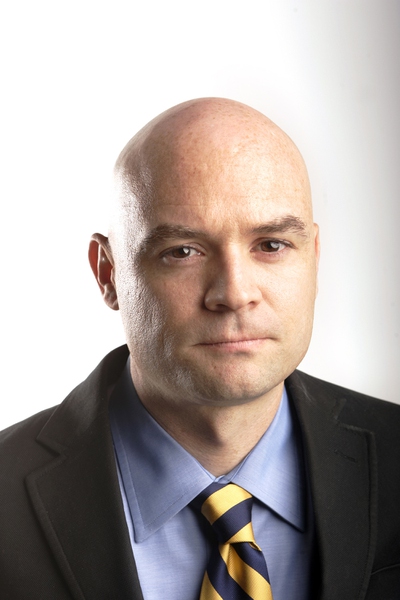
Kaleb Hoeffgen, standing, facilitates an organizational meeting for the next day’s planned Occupy Las Vegas march Wednesday, Oct. 5, 2011, in the UNLV student union.
Thursday, Oct. 6, 2011 | 2 a.m.
Sun archives
For two years I’ve been wondering where they are — the long-term unemployed, the people who have lost their homes to foreclosure, the still-employed who have lost all their savings. Why aren’t they marching on Washington, demanding an end to three decades of right-wing economic policies that delivered incredible riches to a tiny minority of Americans while everyone else struggled to get by?
By contrast, in February 1931, about a year into the Great Depression, food riots broke out across the country.
I understand to a degree the docility of people who are victims of this recession. They’re worried about getting a job or finding a place to live and don’t have time or energy for political action. Plus, here in Southern Nevada, many victims of the recession aren’t citizens and don’t speak English.
But there’s one group whose apathy has been most baffling: recent college graduates who can’t find work. Now, it seems, at least a handful have had enough and founded the Occupy Wall Street movement. The Las Vegas chapter will be demonstrating at 3 p.m. today outside New York-New York, which is fitting. The local group has signed up more than 2,000 souls on Facebook.
They’re a little unfocused, not unlike the tea party movement of early 2009, but if they are persistent, they can help focus the country on our real problem, which isn’t mythical “big guvmint,” but, rather, an obscene concentration of wealth and power among a select few Americans.
Let’s review the politics of the past three years, which have been terribly muddied.
Fall 2008, the housing bubble has burst, sending the economy into a recession that is already nearly a year old, and we then have a financial panic. The cause: massive unregulated betting on Wall Street, which had become a giant casino. To prevent a worldwide depression, President George W. Bush, with the backing of the responsible adults of Washington, including the Democratic and Republican presidential nominees, bails out the banks.
It was distasteful, but it worked. We didn’t have a depression (though in Nevada we experienced something pretty close to it).
Even with that necessary stabilization, the economy entered a massive contraction.
Unfortunately, several factors meant the recession would be particularly long and brutal. Historically, recessions resulting from financial panics are longer than normal recessions. Also, households were laden with debt, which has led to lower consumer spending. Finally, the construction of new housing has helped lead the nation out of every recession since World War II — contractors hiring carpenters and electricians and plumbers to build homes. But with so much excess housing left over from the bubble — and the never-ending churn of foreclosures — housing investment has been nil.
In addition, President Barack Obama and his advisers underestimated how bad things were. Their economic stimulus was too small and didn’t effectively deal with the housing crisis. In 2010, they were punished at the polls.
The banksters — as they were called in the 1930s — screwed us, and who did we blame? Liberals and public employees, naturally.
The reality is that Republicans were rewarded at the polls despite the fact that the country was suffering from three decades of right-wing economic policies that had become consensus thinking in Washington. Even the interlude of President Bill Clinton’s Democratic administration fit this consensus, especially when it came to deregulating Wall Street.
I encourage you to read this history in “Winner-Take-All Politics,” in which Jacob Hacker and Paul Pierson argue that Washington policies contributed to the current situation, in which the wealthiest 1 percent of Americans saw their share of the national income increase from 10 percent in 1980 to more than 23 percent in 2007, while middle-class and poor families stagnated financially.
Washington crushed private-sector labor unions, preventing middle- and working-class people from using their collective power to bargain with management for better wages, while also inhibiting labor’s ability to act as a counterweight to the political power of the richest 1 percent.
(Public-sector unions are a different story, and I concede that another bad bipartisan consensus of generosity to certain public unions has dealt many states unmanageable pension obligations to those lucky workers.)
Washington also delivered huge tax cuts to the wealthy.
And finally, Washington dismantled many of the safeguards put in place in the 1930s to prevent another financial panic. By allowing the banks to get bigger and take more risks, we enabled them to make massive profits, which they paid out in enormous salaries and bonuses.
That’s what went on the past 30 years, and we’re living with the consequences. But it’s those unemployed college kids who are really feeling the brunt of it. According to a 2009 Yale University study, recent college grads suffer “large, negative wage effects” when they enter the job market during a recession, and the damage lasts for decades.
Sorry, kids.


Join the Discussion:
Check this out for a full explanation of our conversion to the LiveFyre commenting system and instructions on how to sign up for an account.
Full comments policy